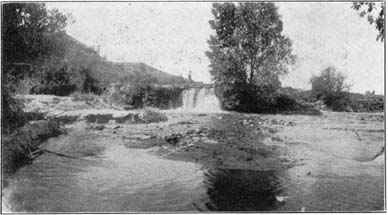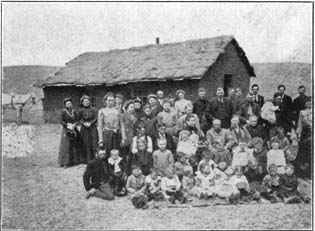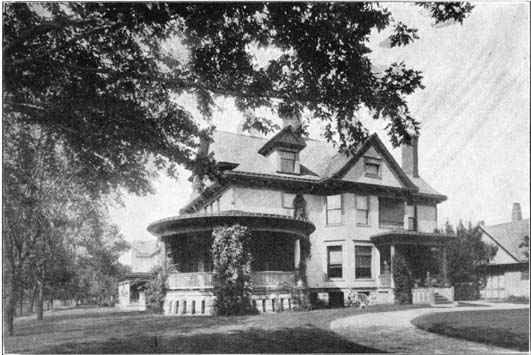|
118
|
SEMI-CENTENNIAL HISTORY OF
NEBRASKA
|
|
unchanged on the statute book to this day. An
act was passed forbidding pooling by grain dealers in
Nebraska, and another prohibiting non-resident aliens
from acquiring lands in the state.
For governor in 1888,
John M. Thayer received 104,282 votes, John A. McShane,
democrat, 83,820; George E. Bigelow, prohibitionist,
9,715, and David Butler, the first governor of the state,
who now appeared as the labor candidate,--3,631.
The decade beginning
1890, came in, apparently, for Nebraska on a flood tide
of harmony and prosperity. The previous ten years had
witnessed the greatest material growth in the state's
history. The census figures indicated a population of
1,058,510 against 450,022 in 1880. It is now known and
admitted, however, that the federal census of that year
was padded by the officers in charge from 50,000 to
100,000 names. Wealth, by the same census, had grown from
$385,000,000 to $1,275,000,000, indicating that while
population had doubled wealth had trebled. Whether these
figures, also, were padded or not, much of this vast
increase in wealth was fictitious--

Eagle Creek Mill-Dam, Turner, Holt County, Nebraska
speculative values and the conversion of cattle
ranges into 160-acre farms, and cornfields into town
lots. But there were the figures, and an active army of
real estate boomers hailed them with delight and
proceeded to lay off more additions. The political sky
was likewise almost cloudless. The factional fight in the
republican party had almost disappeared and everything
seemed to promise a long continuance of existing
conditions. It is true there was some discontent among
farmers over low prices for grain, and a rapid
organization during the year 1889 of Farmer's Alliances,
a new agricultural organization,--but nothing so far to
indicate the great role it was to play in the near
future.
With
the summer of 1890 the season changed from the wet to the
dry cycle of years. Week after week of hot dry weather
prevailed. Over more than half of the state there was no
corn to husk, and a very light crop elsewhere. The
brilliant soap bubble of speculation burst. Cornfield
town lots found no purchasers. The era of borrowing was
at an end. Pay day was at hand, and nothing to pay
with.
The political campaign
of 1890 in Nebraska
|






